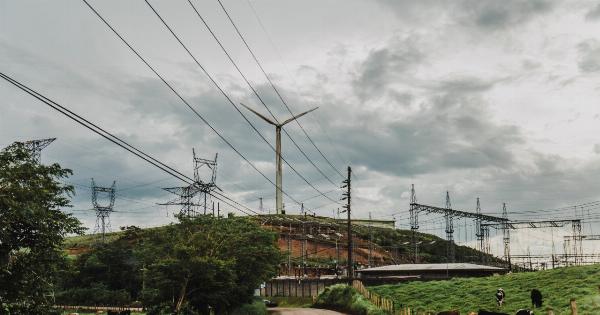When it comes to getting through a long day or boosting our energy levels, many of us turn to our trusty cup of coffee or energy drinks packed with caffeine.
While caffeine can provide a quick pick-me-up, it often comes with side effects such as jitters, anxiety, and disruption of sleep patterns. Fortunately, there are several safe and effective alternatives to caffeine that can help us stay energized throughout the day without the negative consequences.
In this article, we will explore these alternatives and how they can provide a sustained source of energy.
1. Exercise Regularly
Physical activity is a natural way to boost energy levels.
Engaging in regular exercise increases blood flow, improves oxygen delivery to the muscles, and stimulates the release of endorphins, all of which contribute to increased energy and mental alertness. Aim for at least 30 minutes of moderate-intensity exercise, such as brisk walking or cycling, on most days of the week to experience the energizing benefits.
2. Stay Hydrated
Dehydration can often be mistaken for fatigue. Drinking enough water throughout the day keeps your body hydrated and can help fight off feelings of tiredness. Carry a reusable water bottle with you and make it a habit to sip water regularly.
You can also include hydrating foods in your diet, such as fruits and vegetables with high water content, like watermelon and cucumber.
3. Get Sufficient Sleep
A lack of sleep is a common cause of fatigue. Aim for seven to nine hours of quality sleep each night to ensure your body and mind are well-rested.
Establishing a regular sleep schedule, creating a relaxing sleep environment, and practicing good sleep hygiene are essential for getting the rest you need to stay energized during the day.
4. Optimize Your Diet
The food we eat plays a crucial role in our energy levels. Avoiding foods high in processed sugars and refined carbohydrates can prevent energy crashes.
Instead, focus on incorporating complex carbohydrates, lean proteins, and healthy fats into your meals. These include whole grains, vegetables, fruits, nuts, seeds, and lean meats. Additionally, consuming smaller, frequent meals instead of large, heavy meals can help maintain a steady level of energy throughout the day.
5. Manage Stress
Constant stress can drain your energy levels. Finding effective ways to manage and reduce stress can help maintain optimal energy levels.
Explore relaxation techniques like deep breathing exercises, meditation, or engaging in activities that you enjoy and find calming. Taking breaks throughout the day to engage in stress-relieving activities can help you sustain energy and focus.
6. Try Adaptogenic Herbs
Adaptogenic herbs have been used for centuries in traditional medicine to combat fatigue and improve energy levels. These herbs help the body adapt to stressors and promote overall well-being.
Some popular adaptogenic herbs include Rhodiola rosea, Ashwagandha, Ginseng, and Holy Basil. It is important to consult with a healthcare professional before incorporating these herbs into your routine, especially if you are taking any medications.
7. Boost Energy with B Vitamins
Vitamins B-12 and B-6 play a vital role in energy production. They are involved in converting the food we eat into energy that our cells can use.
Adding B-vitamin-rich foods to your diet, such as lean meats, fish, eggs, dairy products, legumes, and leafy greens, can help support your body’s energy production. If needed, supplements can also be taken under the guidance of a healthcare professional.
8. Get Some Sunlight
Sunlight exposure triggers the production of serotonin, a hormone that promotes feelings of well-being and boosts energy levels. Spending some time outdoors, especially in the morning, can provide a natural energy boost.
If you’re unable to get enough sunlight, consider using a lightbox or lamp that mimics natural sunlight.
9. Stay Active Mentally
Keeping your brain engaged and active can prevent mental fatigue and help maintain alertness throughout the day. Challenge your mind with puzzles, reading, learning a new skill, or engaging in stimulating conversations.
Taking short breaks to do a quick mental exercise, such as solving a crossword or Sudoku puzzle, can also help recharge your brain.
10. Try Natural Energy-Boosting Supplements
In addition to the aforementioned natural alternatives, several supplements can provide an extra energy boost. Some popular options include iron, magnesium, CoQ10, and ginkgo biloba.
However, make sure to consult with a healthcare professional before taking any supplements to ensure they are safe for you and won’t interact with any existing medications.
By incorporating these safe and effective alternatives to caffeine into your lifestyle, you can enjoy sustained energy levels without the negative side effects.
Remember that everyone’s energy requirements are different, so it may take some experimentation to find the methods that work best for you. Prioritize self-care, maintain a healthy lifestyle, and listen to your body’s needs to optimize your energy levels throughout the day.































